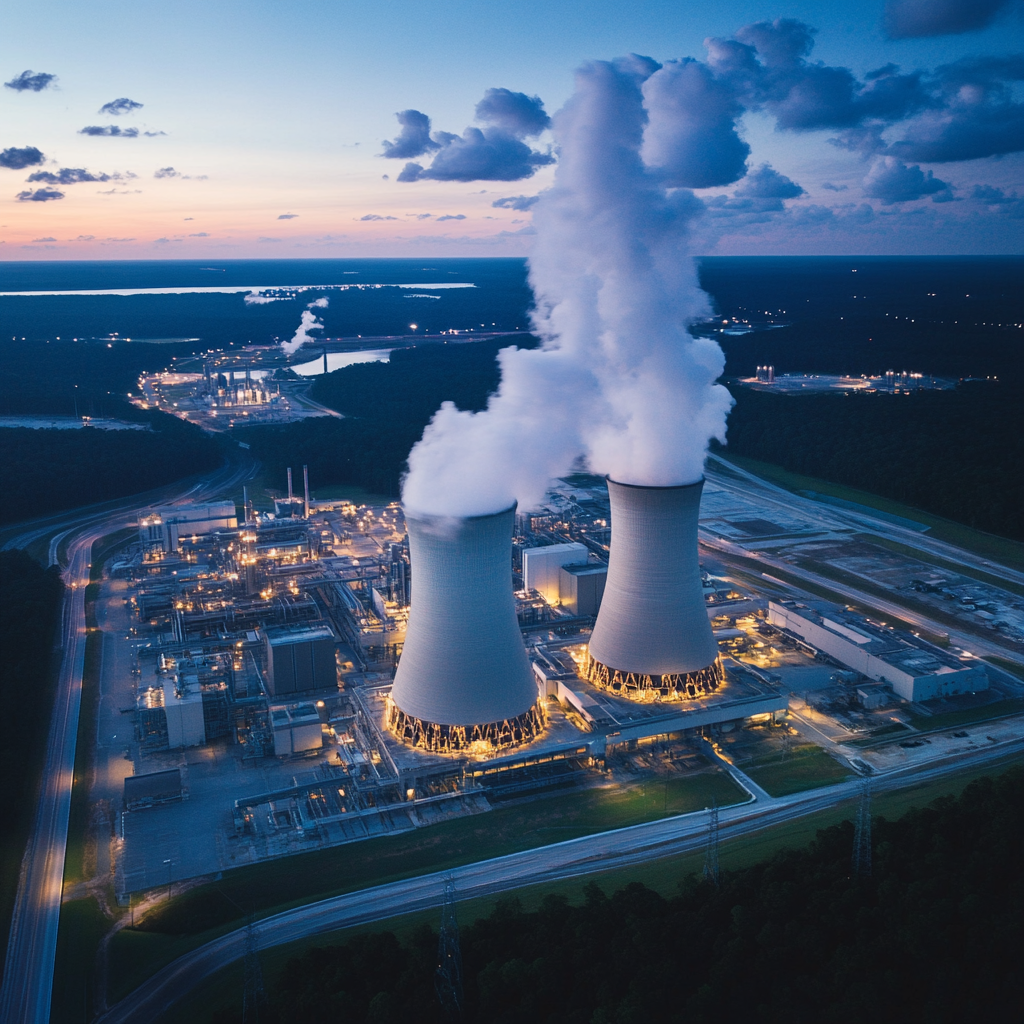
- The South Carolina power provider is exploring interest in restarting construction of two nuclear reactors at V.C. Summer Nuclear Station. With surging demand for clean energy fueled by the AI boom, companies like Amazon, Microsoft, and Meta may see nuclear energy as a solution to power data centers.
Santee Cooper, one of South Carolina’s largest power providers, is working with financial advisers to gauge interest in reviving the construction of two nuclear reactors at the V.C. Summer Nuclear Station. The utility announced Wednesday that it is seeking proposals for buyers to complete the project. The proposals will be managed by Centerview Partners, with a submission deadline set for May 5.
A Push for Clean Energy to Power AI
The renewed interest in the project comes amid surging demand for clean energy, driven in part by the artificial intelligence (AI) boom. Tech giants such as Amazon, Microsoft, and Meta are expanding their AI capabilities, which require vast amounts of electricity to power data centers. Nuclear energy, as a clean and reliable source, is becoming increasingly attractive to these companies.
“Santee Cooper is betting that the interest in nuclear power will be strong,” said a source familiar with the matter. The utility envisions an association of partners for the project, potentially including a construction firm, a tech company as a power consumer, and additional financial backers. Santee Cooper has stated it does not plan to operate the reactors once they are completed.
A Troubled History
Construction of the two reactors at the V.C. Summer plant was halted in 2017 after Santee Cooper and its then co-owner, South Carolina Electric & Gas (now part of Dominion Energy), had already spent roughly $9 billion. The project was derailed when Westinghouse Electric, the contractor for the reactors, filed for bankruptcy. The reactors were originally planned to be operational by 2019 and were among the first major U.S. nuclear projects in decades.
Currently, Santee Cooper owns 100% of the V.C. Summer plant and expects to recover some of the $9 billion spent. Completing the reactors, however, would require billions more and take several years to finalize.
Reviving U.S. Nuclear Power
The V.C. Summer project is part of a broader trend of renewed interest in nuclear energy in the United States. For years, the construction of large nuclear reactors stalled amid competition from cheaper natural gas and renewable energy sources. But the growing demand for reliable, carbon-free electricity is changing the narrative.
Tech companies are leading the charge. Microsoft and Constellation Energy recently announced plans to restart Pennsylvania’s Three Mile Island. Google’s parent company, Alphabet, has pledged to support small modular nuclear reactors, while Amazon has backed several nuclear projects. Meta has also issued a call for proposals to collaborate with nuclear developers in the U.S.
Despite these developments, the costs and risks of nuclear construction remain significant. The addition of two new reactors at Georgia’s Plant Vogtle—the largest nuclear plant in the U.S.—exceeded $30 billion, more than double initial estimates. The project was completed only last year after years of delays.
The Path Ahead
For Santee Cooper, the next step involves identifying a buyer or consortium willing to take on the challenge of completing the V.C. Summer reactors. The utility’s decision to solicit proposals signals optimism that nuclear power can play a pivotal role in meeting the rising demand for clean energy.
Whether the AI-driven demand will be enough to overcome the financial and logistical hurdles remains to be seen. However, the collaboration between energy providers, tech companies, and construction firms could mark a turning point for the future of nuclear power in the U.S.


0 Comments